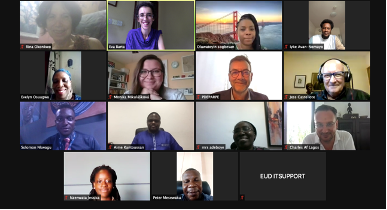The heritage project was aimed at repositioning Nigerian museums through increased cooperation between EU Countries and Nigeria / African cultural professionals working in the museums sector through capacity building, networking and other exchange activities.
Outcomes
Within the capacity of the project, four virtual workshops were organised for Nigerian Museum Professionals. The themes of these workshops were Museum & Education, Audience Development & Inclusive Participation, Museum as Interactive Public Spaces, as well as Museum & Digitisation.
The project impacted on design of new programmes that encouraged inclusion of youths and communities to visit museums and interact with the collections. Digitisation of artefacts to facilitate inclusion of broader audience was encouraged. The project has encouraged co-operations of professionals between different museums to encourage further collaborations. After the first low turnout, the workshops were opened to include professionals from art galleries and other private museums to have a wider reach and impact.
The project has encouraged new relationship to be created between Nigerian museum professionals and the experts from Europe, United States of America and Senegal. Experts and participants are willing to engage in collaborative exercise on ongoing and proposed museum programmes. The project has facilitated school engagement programme at Yemisi Shyllon Museum of Contemporary Art. Continuous professional development and collaborative exercises between National Commission for Museums and Monuments and private museums is encouraged as well as sharing of ideas and concepts such as the use of audience feedback/ comment register used in Museum of Black Civilisations in Senegal.
Challenges & Learnings
Inclusive participation of all the participants and experts was encouraged through open discussions. As a challenge, poor internet services connectivity from the participants resulted in low turnout, and continuous logging in and out. To prevent low turnout, participants were contacted by phone prior to the training as a reminder and participants were encouraged to participate and reimbursed for their data afterwards. Locating other African experts on museum topics was challenging. This collaborative exercise was important and practical led projects to follow the virtual workshop so as to implement what were discussed.
The project helped to share different point of view exchanged by the curators present on restitution of African objects exhibit in French Museum.
Patrice Deparpe, Chief Curator Matisse Museum, North of France

